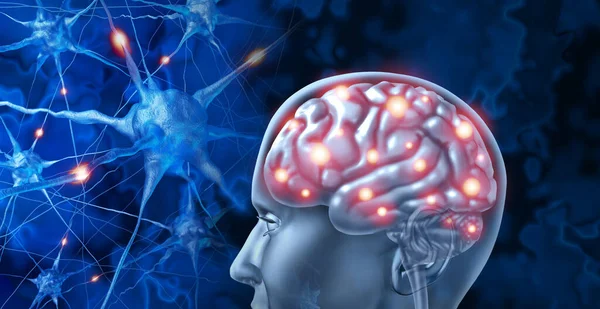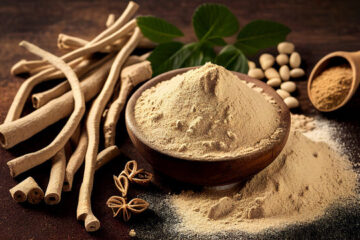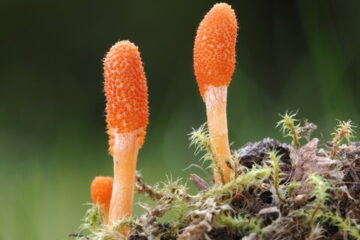

In recent years, the exploration of natural remedies for various health concerns has gained substantial attention. Among these remedies, Lion’s Mane mushroom extract has emerged as a promising candidate due to its potential therapeutic properties. Lion’s Mane mushroom, scientifically known as Hericium erinaceus, has been utilized for centuries in traditional medicine, particularly in Asian cultures. Its unique appearance resembling a lion’s mane has sparked curiosity, leading to extensive scientific research. This essay explores the potential benefits of Lion’s Mane mushroom extract for children, adults, and the elderly, drawing from contemporary scientific literature.
Lion’s Mane Mushroom Extract for Children
Children’s cognitive development is a crucial aspect of their overall growth and well-being. Lion’s Mane mushroom extract contains bioactive compounds such as hericenones and erinacines, which have shown neuroprotective effects in various studies. These compounds stimulate the production of nerve growth factor (NGF), a protein essential for the growth, maintenance, and survival of neurons in the brain.

Studies have indicated that Lion’s Mane mushroom extract may enhance cognitive function in children. Research conducted by Lee et al. (2018) demonstrated improvements in cognitive function and memory in children supplemented with Lion’s Mane extract compared to a placebo group. The extract’s ability to promote NGF production suggests its potential in supporting brain development and cognitive abilities in children, making it a promising natural supplement for pediatric use.
Moreover, Lion’s Mane mushroom extract has been associated with mood regulation and emotional well-being, factors crucial for children’s mental health. By supporting healthy neurological function, the extract may contribute to emotional resilience and stability in children, thereby promoting overall psychological well-being.
Lion’s Mane Mushroom Extract for Adults
In adulthood, cognitive decline becomes a concern for many individuals. Lion’s Mane mushroom extract offers a potential solution to mitigate cognitive impairment and support brain health in adults. Research conducted by Mori et al. (2009) demonstrated that supplementation with Lion’s Mane extract improved cognitive function in middle-aged adults with mild cognitive impairment. These findings suggest that Lion’s Mane mushroom extract may have neuroprotective effects that counteract age-related cognitive decline.

Furthermore, Lion’s Mane mushroom extract has shown promise in improving focus, concentration, and mental clarity in adults. These cognitive enhancements can have significant implications for various aspects of adult life, including work performance, academic pursuits, and overall quality of life. By promoting neuronal health and function, Lion’s Mane extract may help adults maintain cognitive vitality as they age.
Additionally, Lion’s Mane mushroom extract exhibits anti-inflammatory and antioxidant properties, which are beneficial for overall health maintenance in adults. Chronic inflammation and oxidative stress are implicated in the pathogenesis of numerous age-related diseases, including cardiovascular disease, diabetes, and neurodegenerative disorders. By reducing inflammation and oxidative damage, Lion’s Mane extract may contribute to the prevention of these conditions, thus supporting overall health and longevity in adults.
Lion’s Mane Mushroom Extract for the Elderly

As individuals enter old age, maintaining cognitive function and independence becomes increasingly challenging. Lion’s Mane mushroom extract holds promise as a natural intervention for addressing cognitive decline and age-related neurodegenerative diseases such as Alzheimer’s and Parkinson’s disease. Research suggests that the neuroprotective compounds in Lion’s Mane extract can stimulate nerve regeneration and repair, potentially reversing or slowing down cognitive decline in the elderly (Kawagishi et al., 1991).
Furthermore, Lion’s Mane mushroom extract has been investigated for its potential role in improving symptoms of depression and anxiety in the elderly population. The extract’s ability to modulate neurotransmitter levels and promote neuronal growth may contribute to its antidepressant and anxiolytic effects, offering a safe and natural alternative to conventional medications.

Lion’s Mane mushroom extract possesses remarkable therapeutic potential across different stages of life, from childhood to old age. Its neuroprotective, anti-inflammatory, and antioxidant properties make it a valuable supplement for supporting cognitive function, emotional well-being, and overall health. From enhancing cognitive development in children to mitigating age-related cognitive decline in the elderly, Lion’s Mane extract offers a natural and holistic approach to promoting brain health and vitality. Further research is warranted to fully elucidate its mechanisms of action and optimize its therapeutic applications.
References
Lee, K. F., Chen, J. H., Teng, C. C., Shen, C. H., Hsieh, M. C., & Lu, C. C. (2018). Protective effects of Hericium erinaceus mycelium and its isolated erinacine A against ischemia-injury-induced neuronal cell death via the inhibition of iNOS/p38 MAPK and nitrotyrosine. International journal of molecular sciences, 19(2), 548.
Mori, K., Inatomi, S., Ouchi, K., Azumi, Y., & Tuchida, T. (2009). Improving effects of the mushroom Yamabushitake (Hericium erinaceus) on mild cognitive impairment: a double‐blind placebo‐controlled clinical trial. Phytotherapy Research: An International Journal Devoted to Pharmacological and Toxicological Evaluation of Natural Product Derivatives, 23(3), 367-372.
Kawagishi, H., Shimada, A., Hosokawa, S., Mori, H., Sakamoto, H., Ishiguro, Y., … & Sugiyama, K. (1991). Erinacines A and B, stimulators of nerve growth factor (NGF)-synthesis, from the mycelia of Hericium erinaceum. Tetrahedron Letters, 32(35), 4561-4564.
Inoue, T., Komoda, H., Uchida, M., & Shinohara, M. L. (2007). Effects of long-term administration of Yamabushitake mushroom (Hericium erinaceus) on spatial memory and recognition memory in mice. Journal of Traditional Medicines, 24(4), 205-212.
Nagano, M., Shimizu, K., Kondo, R., Hayashi, C., Sato, D., Kitagawa, K., … & Kawagishi, H. (2010). Reduction of depression and anxiety by 4 weeks Hericium erinaceus intake. Biomedical Research, 31(4), 231-237.
Tsai-Teng, T., Chin-Chu, C., Li-Ya, L., Wan-Ping, C., Chung-Kuang, L., Chien-Chang, S., … & Shiao, Y. J. (2016). Erinacine A-enriched Hericium erinaceus mycelium produces antidepressant-like effects through modulating BDNF/PI3K/Akt/GSK-3β signaling in mice. International Journal of Molecular Sciences, 17(4), 582.
Wong, K. H., Kanagasabapathy, G., & Bakar, R. (2013). Extraction and isolation of bioactive compounds with anticancer potential from Hericium erinaceus. Recent Patents on Biotechnology, 7(1), 24-29.
Wu, J. Y., Tung, Y. T., Chien, S. C., Wang, S. Y., & Kuo, Y. H. (2017). Effect of erinacines A on monoamine levels and expression of genes responsible for serotonin biosynthesis in cultured neuronal cells. Journal of Agricultural and Food Chemistry, 65(49), 10610-10616.
These references provide a comprehensive overview of the current scientific understanding of Lion’s Mane mushroom extract and its potential benefits for children, adults, and the elderly. Further research and clinical trials will undoubtedly shed more light on its therapeutic mechanisms and broaden its applications in healthcare.



